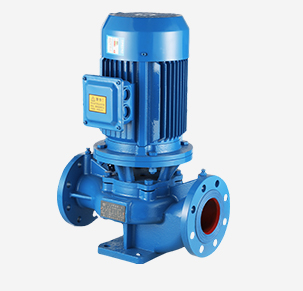Scottish Gaelic
- Afrikaans
- Albanian
- Amharic
- Arabic
- Armenian
- Azerbaijani
- Basque
- Belarusian
- Bengali
- Bosnian
- Bulgarian
- Catalan
- Cebuano
- Corsican
- Croatian
- Czech
- Danish
- Dutch
- English
- Esperanto
- Estonian
- Finnish
- French
- Frisian
- Galician
- Georgian
- German
- Greek
- Gujarati
- Haitian Creole
- hausa
- hawaiian
- Hebrew
- Hindi
- Miao
- Hungarian
- Icelandic
- igbo
- Indonesian
- irish
- Italian
- Japanese
- Javanese
- Kannada
- kazakh
- Khmer
- Rwandese
- Korean
- Kurdish
- Kyrgyz
- Lao
- Latin
- Latvian
- Lithuanian
- Luxembourgish
- Macedonian
- Malgashi
- Malay
- Malayalam
- Maltese
- Maori
- Marathi
- Mongolian
- Myanmar
- Nepali
- Norwegian
- Norwegian
- Occitan
- Pashto
- Persian
- Polish
- Portuguese
- Punjabi
- Romanian
- Russian
- Samoan
- Scottish Gaelic
- Serbian
- Sesotho
- Shona
- Sindhi
- Sinhala
- Slovak
- Slovenian
- Somali
- Spanish
- Sundanese
- Swahili
- Swedish
- Tagalog
- Tajik
- Tamil
- Tatar
- Telugu
- Thai
- Turkish
- Turkmen
- Ukrainian
- Urdu
- Uighur
- Uzbek
- Vietnamese
- Welsh
- Bantu
- Yiddish
- Yoruba
- Zulu
Telephone: +86 13120555503
Email: frank@cypump.com
Dàmh . 01, 2024 13:58 Back to list
Understanding the Basics and Functions of Effluent Pumps in Wastewater Management
Understanding Effluent Pumps A Comprehensive Overview
Effluent pumps play a critical role in wastewater management systems, particularly in residential and commercial settings. These pumps are specifically designed to transport wastewater that has already undergone some degree of treatment, separating it from solids and other larger particles. Unlike sewage pumps, which handle raw sewage, effluent pumps manage liquid that contains fewer solids, making them ideal for various applications, including septic systems and greywater systems.
How Effluent Pumps Work
Effluent pumps operate using a simple yet effective mechanism. When wastewater accumulates in a designated basin or sump, the pump's floating device or switch activates once the water reaches a specific level. The pump then draws the effluent into its housing, where an impeller pushes the liquid out through a discharge pipe, transporting it to a drainage field, leach field, or different disposal site.
These pumps can be submersible, which means they are placed within the sump or basin, or they can be pedestal pumps, which stand above the liquid level, drawing effluent from below. Submersible effluent pumps are generally preferred due to their ability to operate quietly and efficiently underwater.
Applications of Effluent Pumps
Effluent pumps are widely used in various applications, including
1. Septic Systems In many rural areas where centralized sewage systems are unavailable, septic systems are a popular alternative. Effluent pumps help move effluent from septic tanks to drain fields, ensuring that treated wastewater is effectively dispersed in the soil.
2. Greywater Systems Effluent pumps are beneficial for systems that recycle greywater, which is wastewater generated from domestic activities such as washing dishes, doing laundry, and bathing. By using an effluent pump, homeowners can redirect greywater for irrigation and other non-potable uses.
3. Sump Pumps These pumps are instrumental in preventing flooding in basements and crawl spaces. Effluent pumps can be used in sump pump applications to remove excess water, particularly when stormwater or groundwater accumulation occurs.
4. Industrial Applications Many industries require the management of wastewater as part of their operational processes. Effluent pumps are utilized to transfer treated effluent from treatment plants to disposal sites, ensuring compliance with environmental regulations.
what is effluent pump

Choosing the Right Effluent Pump
When selecting an effluent pump, several factors should be considered to ensure optimal performance and longevity
- Flow Rate Evaluate the required flow rate based on the volume of effluent being handled. Pumps come with varying capacities, and selecting one that matches your needs is essential for efficiency.
- Head Pressure This refers to the vertical distance the pump must move effluent. Ensure the pump can handle the required head pressure for your specific installation.
- Power Source Effluent pumps can be powered by electricity or, in some cases, by gas. Choose a power source that suits your application and location.
- Material Composition Pumps are constructed from various materials, such as thermoplastic or stainless steel. Consider the pump’s resistance to corrosion, especially in applications involving treated effluent.
Maintenance and Care
Regular maintenance of effluent pumps is crucial to ensure their longevity and reliable performance. This includes routine inspections for clogs, checking the power supply, cleaning the impeller, and ensuring proper function of the float switch. Simple preventive measures can save costs related to repairs and replacements in the long run.
Conclusion
Effluent pumps are an indispensable component of modern wastewater management systems. By understanding how they work and their applications, property owners can make informed decisions regarding wastewater disposal and treatment. Investing in the right effluent pump and practices will not only protect one’s property but also contribute to sustainable water management efforts.
-
ISG Series Vertical Pipeline Pump - Chi Yuan Pumps Co., LTD.|High Efficiency, Energy Saving, Low Noise
NewsJul.30,2025
-
ISG Series Vertical Pipeline Pump- Chi Yuan Pumps|High Efficiency&Low Noise
NewsJul.30,2025
-
ISG Series Vertical Pipeline Pump-Chi Yuan Pumps Co., LTD.|High Efficiency&Energy Conservation
NewsJul.30,2025
-
ISG Series Vertical Pipeline Pump - Chi Yuan Pumps Co., LTD.|Advanced Hydraulic Design&Energy-Efficient Solutions
NewsJul.30,2025
-
ISG Series Vertical Pipeline Pump - Chi Yuan Pumps Co., LTD.
NewsJul.30,2025
-
ISG Series Vertical Pipeline Pump - Chi Yuan Pumps Co., LTD.|energy-efficient fluid handling&industrial durability
NewsJul.30,2025










